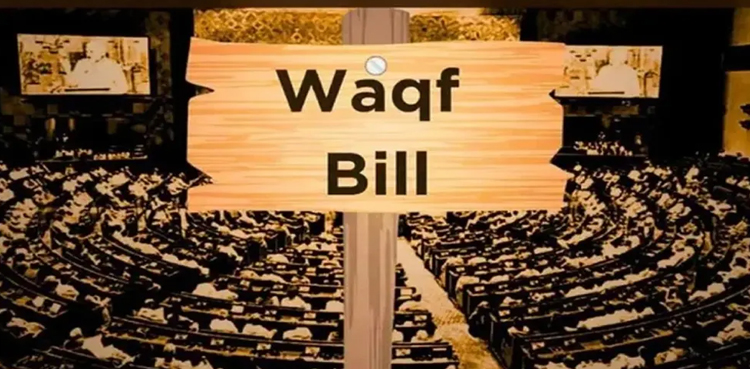
NEW DELHI: The Waqf Amendment Bill 2025 has sparked significant controversy in India as All India Majlis-e-Ittehadul Muslimeen (AIMIM) President Asaduddin Owaisi and Congress MP Muhammad Jawed approached the Supreme Court of India on Friday to challenge its constitutional validity.
Both leaders, who were part of the Joint Parliamentary Committee on the Waqf Bill, have raised concerns over the Waqf Amendment Bill and its alleged imposition of arbitrary restrictions on Waqf properties and their management.
The bill, passed earlier in the day after marathon debates in both the Lok Sabha and Rajya Sabha, has been criticised for imposing restrictions not present in the governance of other religious endowments.
Muhammad Jawed’s plea, filed through Advocate Anas Tanwir, argues that the legislation undermines the autonomy of Waqf properties, while Asaduddin Owaisi’s petition, submitted by advocate Lzafeer Ahmad, highlights its discriminatory impact on the Muslim community.
Congress General Secretary Jairam Ramesh announced that the party would soon file its challenge to the bill in the Supreme Court.
Read also: Indian Muslim community rejects Waqf Amendment Bill
Congress Parliamentary Party Chairperson Sonia Gandhi condemned the Waqf Amendment Bill 2025, calling it a “brazen assault on the Constitution” and accusing the government of arbitrarily pushing it through Parliament.
The Waqf Amendment Bill 2025 was passed in the Lok Sabha with 288 votes in favor and 232 against and later cleared in the Rajya Sabha with 128 votes supporting it and 95 opposing it.
Union Minority Affairs Minister Kiren Rijiju, who tabled the bill, defended it as a measure to enhance transparency and eliminate corruption in the management of Waqf properties.
However, opposition parties, including the Congress, have labeled it unconstitutional and detrimental to minority rights.
The bill has been criticised for its potential to disrupt the governance of Waqf properties and minority rights.
Legal experts suggest that the Supreme Court’s decision on this matter could set a precedent for the balance between regulatory oversight and religious autonomy.
Congress has previously challenged other controversial laws, including the Citizenship Amendment Act (CAA) 2019 and amendments to the Right to Information (RTI) Act 2005.






